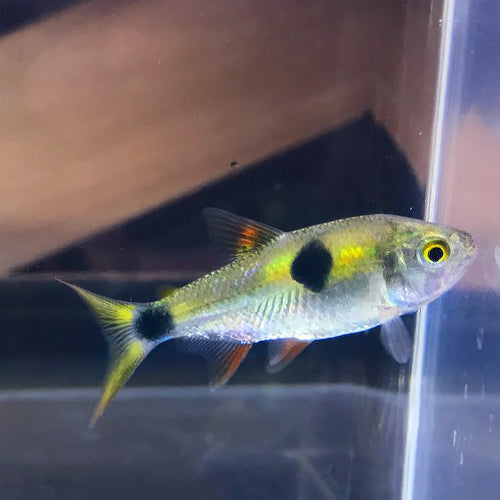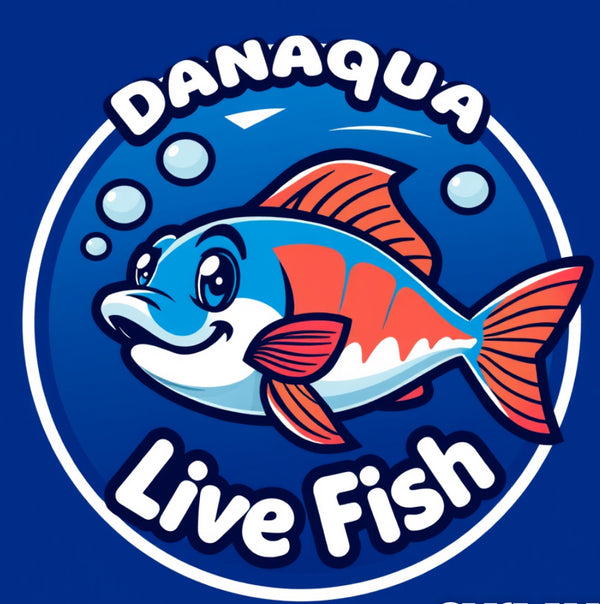1
/
of
1
DANAQUA
Bucktooth Tetra (Exodon paradoxus)
Bucktooth Tetra (Exodon paradoxus)
Regular price
$14.99
Regular price
$15.99
Sale price
$14.99
Shipping calculated at checkout.
Quantity
Couldn't load pickup availability
Physical Description
- Size:Typically grows to about 4 inches (10 cm).
- Shape:Sleek, torpedo-shaped body.
- Coloration:Iridescent silver scales, with black spots and a golden or reddish hue along the flanks.
- Teeth:Has pronounced, pointed teeth that are visible from the outside, giving it the name "Bucktooth Tetra".
Behavior & Diet
- Predatory:The Exodon tetra is a ferocious predator, particularly skilled at feeding on the scales and fins of other fish (lepidophagy).
- Aggression:They are moderately aggressive, especially when in small groups, but can become more so when defending territory.
- Activity:Highly active, fast swimmers that need plenty of open swimming space.
- Social Behavior:They are shoaling fish that do better in large groups (a shoal of 8 or more is recommended) to prevent stress and aggression within the group.
Habitat
- Origin:Found in the Amazon and Orinoco river basins, as well as in Guyana.
- Environment:Inhabits areas with a strong presence of aquatic plants, decaying organic matter, and roots.
Tank Requirements (for aquarists)
- Tank Size:A minimum of 30 gallons is recommended.
- Water Parameters:Keep water between 72-80°F (22-27°C) with a pH of 6.0-7.5.
- Decor:Provide plenty of hiding spots and territories using driftwood, rocks, and dense plantings. Dim lighting or floating plants are also beneficial.
- Tankmates:Due to their predatory nature, they are best kept in large planted tanks or with other fish that are not susceptible to their scale-feeding behavior, such as catfish.
Share


